Removal Procedure
Important: This vehicle uses a sequential multiport fuel injected engine. The fuel
injector connectors must be connected to their appropriate fuel injector,
or engine performance and exhaust emissions may be seriously affected. The
fuel injector connectors are numbered to match their correct fuel injector
for that cylinder. If the fuel injector connector numbers can not be identified,
refer to Electrical Diagnosis for correct fuel injector connector wire to
fuel injector for each cylinder.
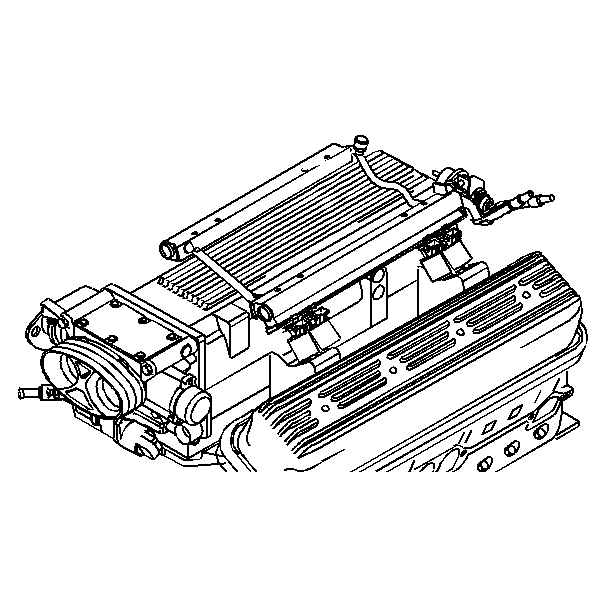
Caution: Unless directed otherwise, the ignition and start switch must be in the OFF or LOCK position, and all electrical loads must be OFF before servicing
any electrical component. Disconnect the negative battery cable to prevent an electrical spark should a tool or equipment come in contact with an exposed electrical terminal. Failure to follow these precautions may result in personal injury and/or damage to
the vehicle or its components.
- Disconnect the negative battery cable.
- Drain the coolant. Refer to
Cooling System Draining and Filling
in Engine Cooling.
- Remove the resonator bracket nuts.
- Remove the resonator by loosening the clamp and sliding the resonator
off the studs.
- Remove the throttle body air duct.
- Remove the wiring harness connectors from the fuel injectors.
- Remove the left and right wiring harness clips.
- Lay the wiring harness aside.
- Remove the accelerator control cable at the throttle body.
- Remove the accelerator control cable bracket bolts and bracket
from the throttle body.
- Relieve the fuel system pressure. Refer to Fuel Pressure Relief Procedure
in Engine Controls.
- Disconnect the fuel pipe connectors from the fuel rail.
Fuel Hose and Pipes
in
Engine Controls.
- Remove the fuel rail bolts.
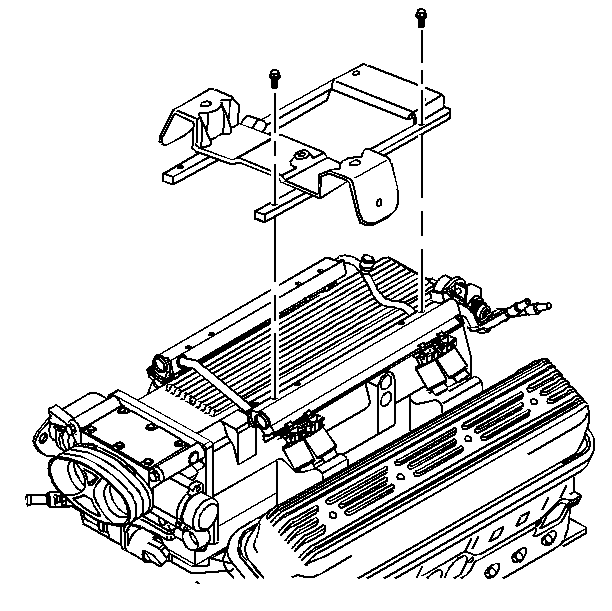
- Remove the resonator bracket
with the canister purge solenoid attached.
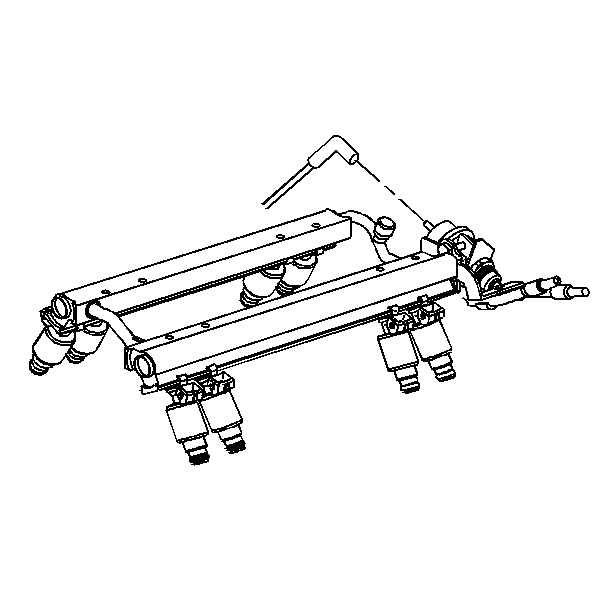
- Disconnect the fuel pressure
regulator vacuum tube.
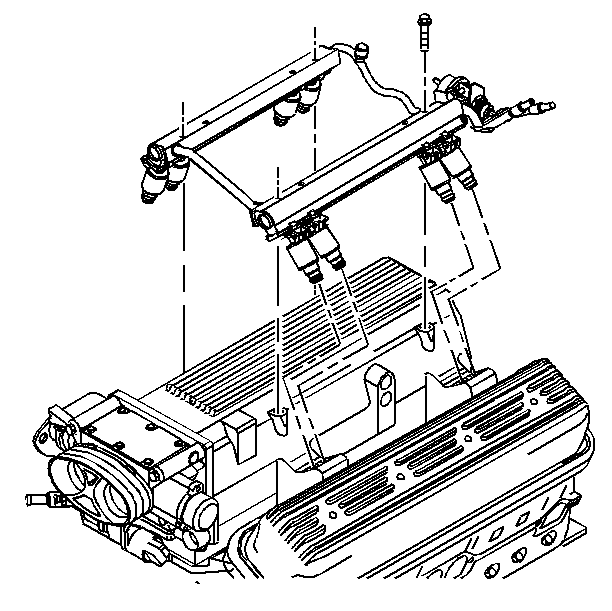
- Remove the fuel rail from
the intake manifold and lay aside.
- Disconnect the exhaust gas recirculation (EGR) and the distributor
vacuum harness and the crankcase vent hoses.
- Plug all open vacuum and vent hoses.
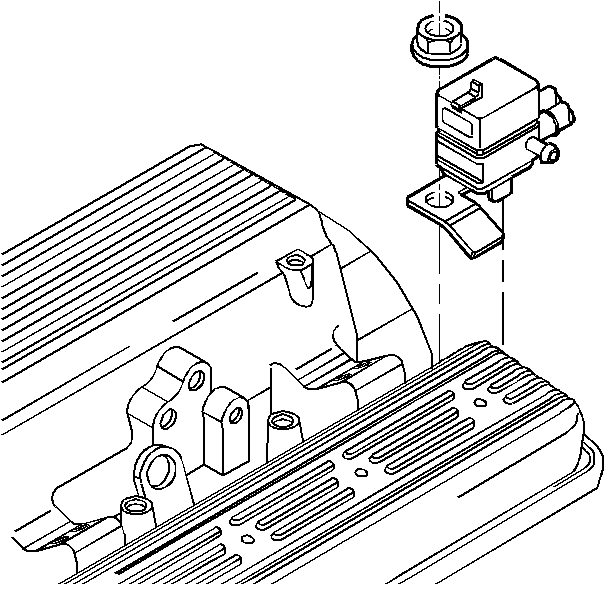
- Remove the EGR control
valve relay solenoid nut.
- Remove the EGR control valve relay.
- Remove the EGR pipe nuts, the EGR pipe bolt, the pipe and the
gasket.
- Discard the gasket.
- Remove the engine wiring harness bracket and nuts at the left
front corner of the intake manifold.
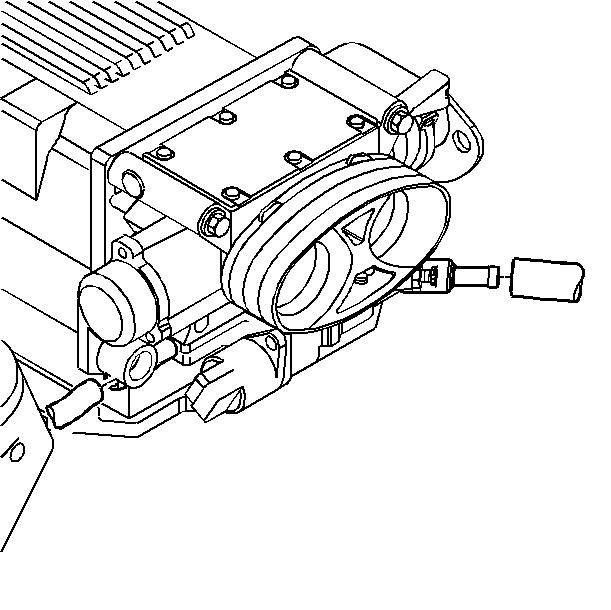
- Remove the coolant hoses
from the throttle body.
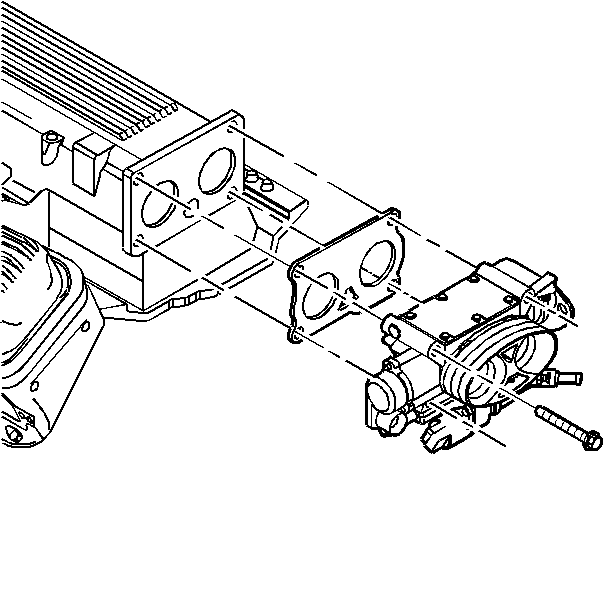
- Remove the following parts:
| • | The throttle body bolts |
| • | The throttle body gasket |
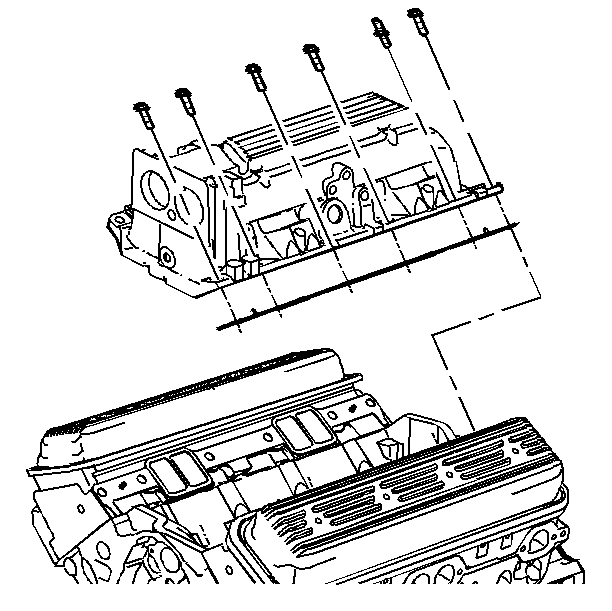
- Remove the intake manifold
bolts and studs.
- Remove the intake manifold and the gaskets.
- Discard the intake manifold gaskets.
- Clean the following parts:
| • | The intake manifold bolts and the studs |
| • | The intake manifold sealing surfaces |
Installation Procedure
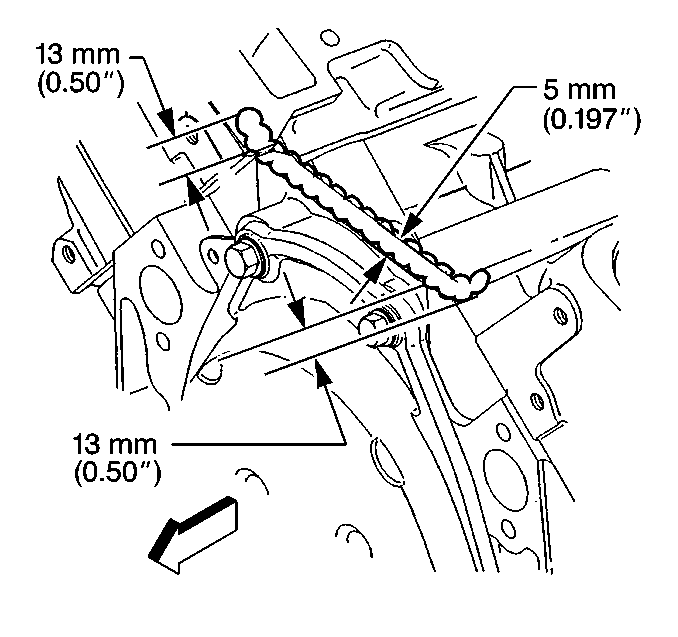
- Apply a 5 mm (0.189 in)
bead of RTV sealer, GM P/N 12346192 or the equivalent, to the front and rear
of the engine block. Extend the bead 13 mm (0.5 in) up each
cylinder head in order to the seal and retain the gaskets.

- Install the intake manifold
with the new gaskets.
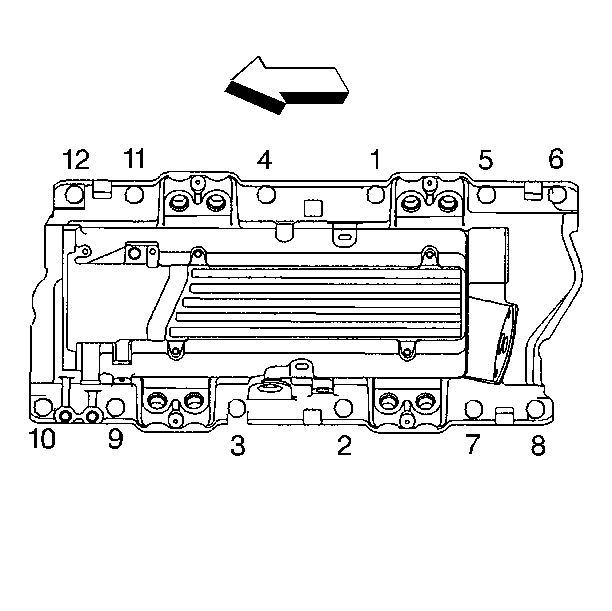
- Install the intake manifold
bolts and the studs.
Tighten
| • | Tighten the intake manifold bolts and the studs in a first pass
to 10 N·m (89 lb in) in sequence. |
| • | Tighten the intake manifold bolts and studs in the second pass
to the final specifications of 50 N·m (37 lb ft)
in sequence. |
Notice: Use the correct fastener in the correct location. Replacement fasteners
must be the correct part number for that application. Fasteners requiring
replacement or fasteners requiring the use of thread locking compound or sealant
are identified in the service procedure. Do not use paints, lubricants, or
corrosion inhibitors on fasteners or fastener joint surfaces unless specified.
These coatings affect fastener torque and joint clamping force and may damage
the fastener. Use the correct tightening sequence and specifications when
installing fasteners in order to avoid damage to parts and systems.

- Install the throttle body,
the gasket, and the bolts.
Tighten
Tighten the throttle body bolts to 25 N·m (18 lb ft).

- Install the coolant hoses
to the throttle body.
- Install the engine wiring harness bracket and the nuts at the
left corner of the intake manifold.
- Install the gasket, the EGR valve pipe, the nuts, and the bolt.
- Install the EGR control valve relay solenoid and nut.
Tighten
| • | Tighten the EGR valve pipe nuts to 25 N·m (18 lb ft). |
| • | Tighten the EGR valve pipe bolt to 25 N·m (18 lb in). |
| • | Tighten the EGR valve relay solenoid nut to 25 N·m
(18 lb ft). |
- Connect the Exhaust Gas Recirculation (EGR) and distributor vacuum
harness, and the crankcase hoses
- Install the fuel rail to the intake manifold.
- Connect the fuel pressure regulator vacuum tube.

- Install the resonator
bracket with the canister purge solenoid attached.
- Install the fuel rail bolts.
Tighten
Tighten the fuel rail bolts to 10 N·m (89 lb in).
- Connect the fuel pipe connectors to the fuel rail. Refer to
Fuel Hose and Pipes
in Engine Controls.
- Install the accelerator control cable bracket and bolts to the
throttle body.
Tighten
Tighten the accelerator control cable bracket and the bolts to 12 N·m
(106 lb in).
- Install the accelerator control cable at the throttle body.
- Install the left and right wiring harness clips and the harnesses.
- Install the wiring harness connectors to their appropriate fuel
injector.
- Install the throttle body air duct.
- Install the resonator by sliding the resonator over the studs
and tightening the clamp until snug.
- Install the resonator bracket nuts.
Tighten
Tighten the nuts to 10 N·m (89 lb in).
- Connect the battery negative cable.
- Refill and bleed the cooling system. Refer to
Cooling System Draining and Filling
in Engine Cooling.














